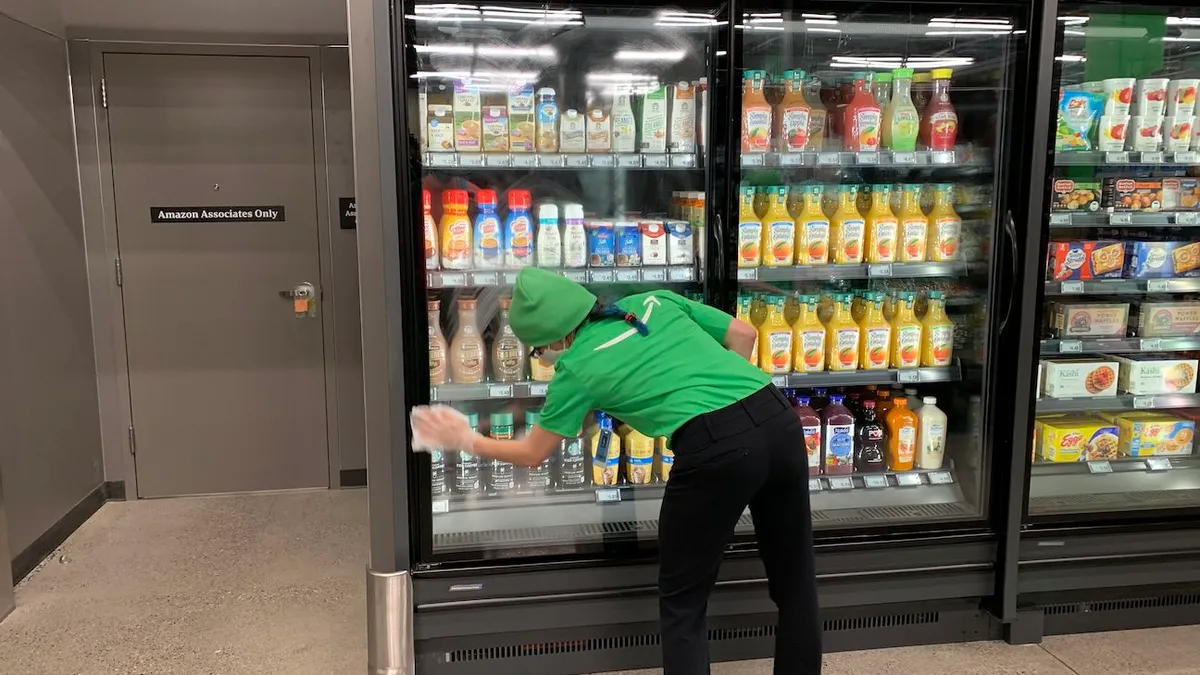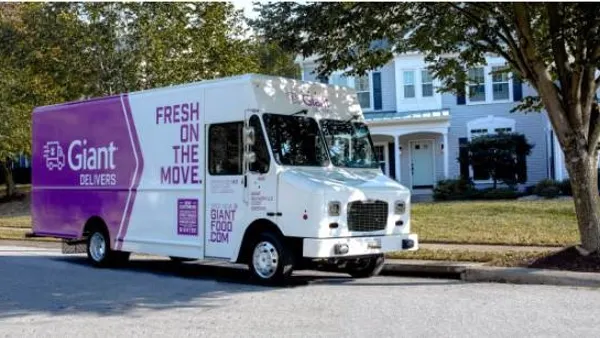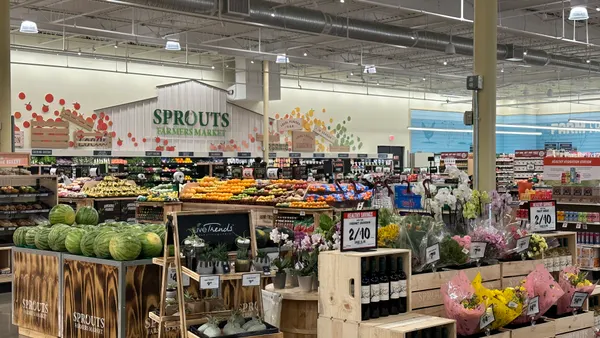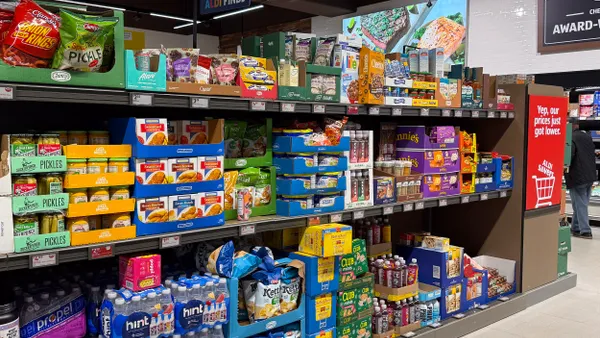Dive Brief:
- Employment at food and beverage stores in the United States fell by 13,000 in June compared with May, extending a steady drop in the number of people working in the sector that began earlier this year, the U.S. Bureau of Labor Statistics reported Friday morning.
- By contrast, restaurants and bars continued to add jobs ahead in June, with payrolls swelling by 194,000 during the month on top of similarly robust increases during the prior three months.
- Grocers are seeing employment in their stores decline as the industry battles intense competition for workers from sectors that had been sidelined by the pandemic.
Dive Insight:
The juxtaposition of employment trends for food retailers and restaurants underscores the multi-prong challenge facing grocers as the nation continues to reopen.
Supermarkets are struggling to staff their stores at the same time as they contend with declining sales and eroding loyalty among shoppers concerned about rising prices. Taken together, those headwinds represent a sharp change from the beneficial forces that for months propelled the industry when grocery stores were among the few retail establishments able to remain open.
Still, while employment in food and beverage stores remained under pressure last month, the downward trend is showing signs of slowing. The 13,000-position drop in June was below losses of 26,000 in May and 47,000 in April, suggesting that campaigns grocers have been waging to attract workers may be bearing fruit.
Some grocers have turned to signing bonuses to bring potential employees in the door. For example, a recent Google search brought up positions carrying $500 sign-on payments for jobs at stores operated by Weis Markets, Buehler's Grocery, Giant Eagle and Wegmans. An ad for a position in a new Amazon Fresh grocery store, meanwhile, dangled a $1,500 signing bonus.
Retailers have also been holding hiring events and taking steps to raise wages. In March, Kroger said it would boost its average hourly wage to $16 by the end of 2021, The Cincinnati Enquirer reported, while Lidl said the same month that it would increase starting pay for workers in its Philadelphia-area stores to $15 per hour.
Grocers may also be benefiting from decisions by a number of states to end the extended unemployment benefits they have been offering people left without work during the pandemic. In May, the National Grocers Association said the extra benefits that were included in the American Rescue Plan were so generous that they encouraged people to avoid looking for new positions.
Employment levels at food retailers remained depressed during the month even as the unemployment rate inched up slightly, to 5.9% from 5.8% in May. The figure was down from 11.1% in June 2020.











